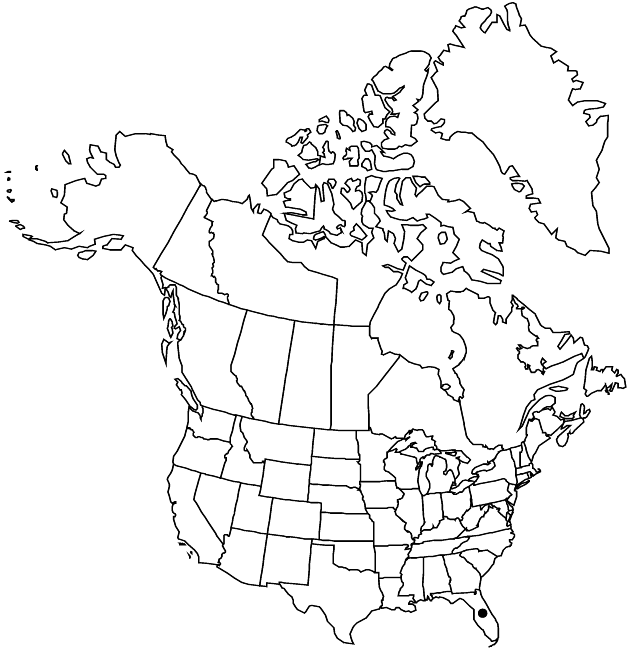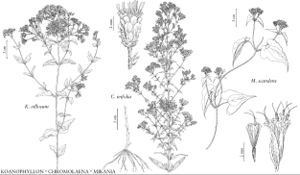Difference between revisions of "Koanophyllon villosum"
Phytologia 32: 265. 1975.
Common names: Florida Keys umbrella thoroughwort
Illustrated
Basionym: Eupatorium villosum Swartz Prodr., 111. 1788
Treatment appears in FNA Volume 21. Treatment on page 542.
FNA>Volume Importer |
imported>Volume Importer |
||
| (2 intermediate revisions by 2 users not shown) | |||
| Line 8: | Line 8: | ||
}} | }} | ||
|common_names=Florida Keys umbrella thoroughwort | |common_names=Florida Keys umbrella thoroughwort | ||
| + | |special_status={{Treatment/ID/Special_status | ||
| + | |code=F | ||
| + | |label=Illustrated | ||
| + | }} | ||
|basionyms={{Treatment/ID/Basionym | |basionyms={{Treatment/ID/Basionym | ||
|name=Eupatorium villosum | |name=Eupatorium villosum | ||
| Line 51: | Line 55: | ||
|publication title=Phytologia | |publication title=Phytologia | ||
|publication year=1975 | |publication year=1975 | ||
| − | |special status= | + | |special status=Illustrated |
| − | |source xml=https:// | + | |source xml=https://bitbucket.org/aafc-mbb/fna-data-curation/src/2e0870ddd59836b60bcf96646a41e87ea5a5943a/coarse_grained_fna_xml/V19-20-21/V21_1377.xml |
|tribe=Asteraceae tribe Eupatorieae | |tribe=Asteraceae tribe Eupatorieae | ||
|genus=Koanophyllon | |genus=Koanophyllon | ||
Latest revision as of 20:10, 5 November 2020
Shrubs, 50–200 cm. Stems densely puberulent to pilose (often minutely gland-dotted). Leaves opposite; petioles 2–8 mm; blades ovate to ovate-deltate or ovate-lanceolate, mostly 2–7(–8) × 1–4 cm, bases truncate to cordate, margins entire or shallowly serrate to crenate, apices obtuse, abaxial faces densely gland-dotted, adaxial sparsely puberulent. Involucres 2.8–3 mm. Phyllaries: outermost elliptic-lanceolate, hispidulous-puberulent, margins herbaceous, mostly eciliate. Corollas white or pinkish white, 2.2–2.6 mm, lobes glandular. Cypselae 1.5–1.8 mm, finely hispidulous-strigose.
Phenology: Flowering year round, perhaps most abundantly May–Sep.
Habitat: Hammocks, pinelands
Elevation: 0–10 m
Distribution

Fla., West Indies (Bahamas).
Discussion
Selected References
None.
Lower Taxa
None.
